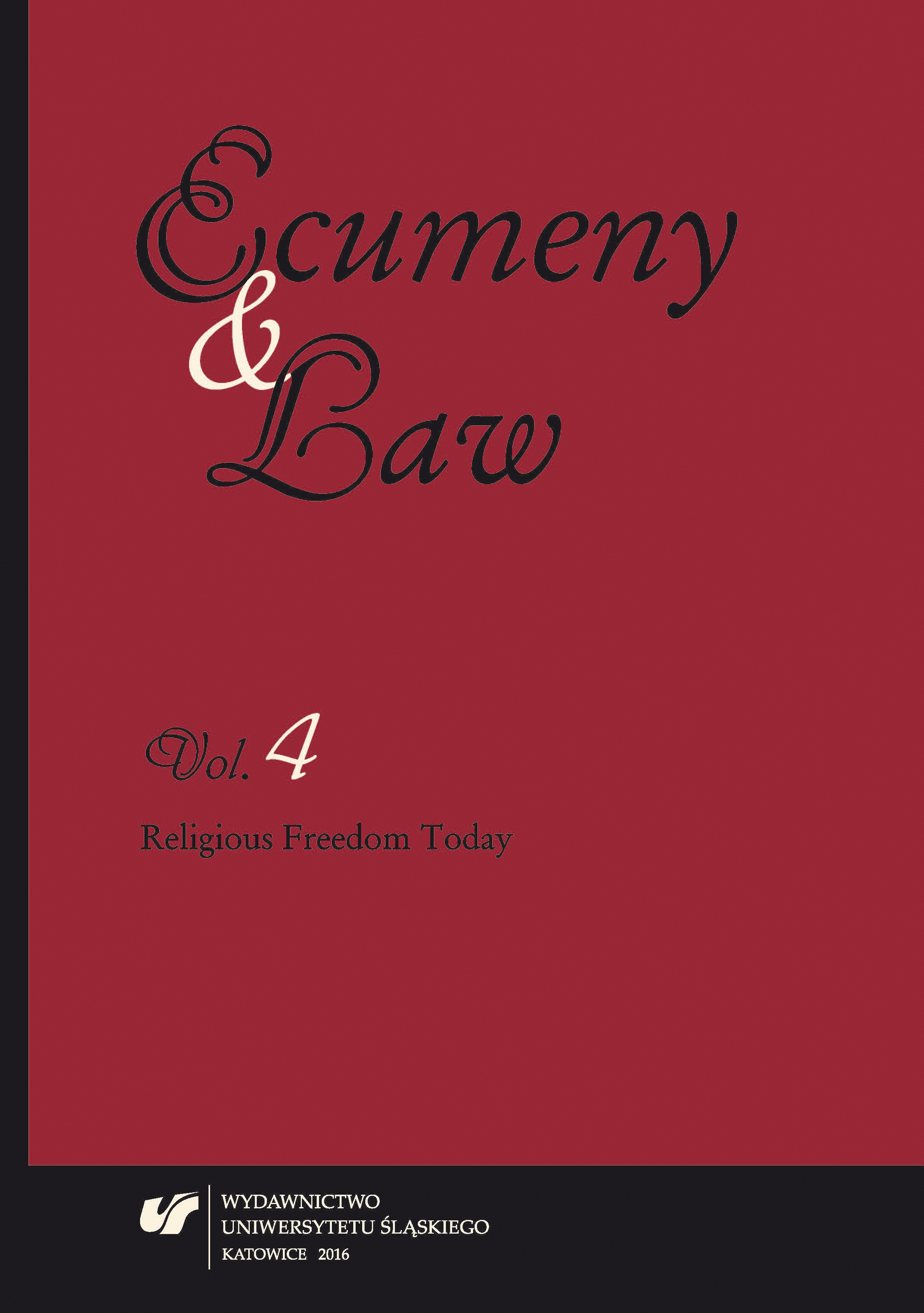From the Church Autonomy of the Archbishop Andrei Şaguna to the Autonomy of the Religious Denominations in the Romanian State: Ecclesiological-Canonical Considerations
From the Church Autonomy of the Archbishop Andrei Şaguna to the Autonomy of the Religious Denominations in the Romanian State: Ecclesiological-Canonical Considerations
Author(s): Nicolae V. DurăSubject(s): Christian Theology and Religion, Canon Law / Church Law, Sociology of Religion
Published by: Wydawnictwo Uniwersytetu Śląskiego
Keywords: Church-state relations; canonical Orthodox doctrine; religious freedom; Canon Codes
Summary/Abstract: From the pages of this study, the reader familiar with the canonical organization of a local Orthodox Church could become acquainted with the fact that one of the main canonical fundamental principles of the Eastern Church, that is the principle of (external) autonomy, was affirmed and applied by the Archbishop of Transylvania, Andrei Şaguna, in his Church, in the totality of its content. But, through its forms of manifestation, this principle characterizes not only the relationships between the Church and the state, during Andrei Şaguna’s times († 1873), the Metropolitan of the Orthodox Church from “Hungary and Transylvania,” but also the contemporary relationships between Romanian state and religious denominations, expressed in the Romanian Constitution and the Law no. 489/2006, although, in its content, this principle was not affirmed and applied in the same manner during these two periods of time.
Journal: Ecumeny and Law
- Issue Year: 2016
- Issue No: 4
- Page Range: 235-256
- Page Count: 22
- Language: English

